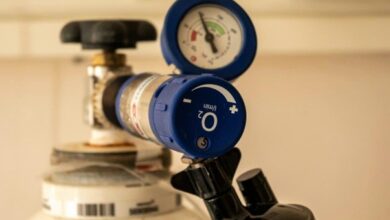How Long Does Alcohol Sit On Your Breath? Key Factors and Timelines Explained
Many people wonder how long the smell of alcohol stays on their breath after drinking. Alcohol can typically remain noticeable on a person’s breath for about 12 to 24 hours, depending on how much was consumed and individual factors like body weight and metabolism. This can be an issue for those who need to drive, go to work, or simply prefer not to have alcohol detected on their breath.
Detecting alcohol on your breath is easier than many think. For those wanting to check their levels at home, a home-use breathalyser test can help monitor breath alcohol content before heading out. These devices can provide peace of mind for social occasions and offer a quick way to assess if alcohol is still lingering.
How Long Does Alcohol Stay on Your Breath?
Alcohol can be detected on the breath for hours after drinking. The length of time depends on how much alcohol was consumed, as well as personal factors like metabolism and body size.
Average Detection Times for Alcohol on the Breath
Alcohol is usually noticeable on the breath for about 12 to 24 hours after drinking. The exact time can vary depending on several factors, such as the amount of alcohol consumed and the person’s metabolism. People who drink more will often have alcohol on their breath for a longer period.
Most home-use breathalyser test devices are designed to pick up alcohol within this window. In general, drinking a single unit of alcohol will take about an hour to fully process, but even small amounts can be detectable for several hours. The type of drink—beer, wine, or spirits—does not matter much. What matters most is the total alcohol content.
Some may start to lose the smell on their breath before 12 hours, especially if they drank only a little. However, for anyone who drinks heavily, the strong scent may last up to or even beyond a full day.
Factors Influencing Alcohol Breath Duration
Several things affect how long alcohol stays on a person’s breath. Age, body weight, and sex all play a part. People with higher body fat often process alcohol more slowly than those with more muscle mass.
Eating before drinking can slow down how fast alcohol is absorbed. Those who eat a large meal before drinking may not have alcohol on their breath as long compared to those who drink on an empty stomach.
Table: Main Influences on Alcohol Breath Duration
| Factor | Effect on Breath Time |
| Amount Drank | Increases duration |
| Food in the Stomach | Decreases duration |
| Metabolism Speed | Can increase or decrease |
| Body Weight | Lower weight increases |
| Health of the Liver | Slower liver, longer time |
Other factors include overall health and hydration. People with liver issues often need more time to clear alcohol from their breath. Dehydration can also play a role, making alcohol’s scent last longer.
Breathalyser Accuracy and Limitations
Breathalysers are commonly used to detect if someone has been drinking. These devices work by measuring alcohol in the breath and then giving an estimated blood alcohol level. While they are a convenient tool, they are not perfect.
Breathalysers can sometimes give false positives. For example, some foods, mouthwashes, or other strong-smelling substances may temporarily influence the reading. Also, personal factors like temperature and breathing pattern can change the results slightly.
Accuracy is usually highest within the first few hours after drinking, but can become less precise as time goes on. It is important for users to follow instructions and wait at least 15-20 minutes after drinking, eating, or smoking before using a breathalyser, as residues in the mouth can affect results.
Some higher-end devices may give a more precise reading, but even these can be influenced by individual differences and technical factors. Breathalysers should be used as a general guide, but not considered 100% accurate in all situations.
Managing and Reducing Alcohol on the Breath
Alcohol breath does not just come from the mouth; it also comes from the lungs when alcohol enters the bloodstream. Several beliefs about masking alcohol breath exist, but not all are accurate, and practical steps can make a difference in how long the scent lasts.
Why Alcohol Lingers on the Breath
When alcohol is consumed, the body breaks it down, but not all of it leaves at once. Some alcohol is absorbed into the bloodstream and makes its way to the lungs. As a person breathes out, a distinct odour may be noticeable.
This process continues until the liver has processed all the alcohol. The scent can last several hours, depending on factors like body size, the amount of alcohol drunk, and metabolic speed. Even after brushing teeth or using mouthwash, the underlying smell may persist if alcohol is still present in the body.
Alcohol breath tends to be the strongest within the first few hours after drinking. The liver can only handle a certain amount each hour, so the scent will remain until the alcohol is cleared from the system.
Myths and Facts About Masking Alcohol on the Breath
Many people believe that strong mints or coffee can completely hide alcohol breath. While these options may briefly mask the smell in the mouth, they do not address the root cause, which is alcohol in the lungs.
Chewing gum, mouthwash, or breath sprays can add a different scent, but won’t eliminate the smell if alcohol is still being processed. Even eating spicy foods and drinking lots of water provides only temporary relief. The idea that black coffee sobers a person up is also a myth. Only time allows alcohol to leave the body fully.
Quick fixes may help in social settings, but no trick will fully remove the odour until the alcohol has been metabolised by the liver.
Steps to Support Faster Dissipation
While the scent of alcohol naturally fades as the body breaks it down, a few actions can help speed the process or reduce the impact. Hydration is one of the most helpful steps, as drinking water can support the body’s ability to process and remove alcohol.
Eating food before or during drinking may also slow alcohol absorption and lessen the lingering smell. Good dental hygiene, including brushing teeth and using mouthwash, helps reduce other mouth odours but cannot clear alcohol from the lungs.
Getting fresh air and light exercise may help someone feel better while waiting, but only time will clear the breath of alcohol completely. The liver must finish its work; no home remedy can make this happen instantaneously.
Conclusion
Alcohol can remain on a person’s breath for several hours after drinking. Most people will have a detectable smell for 12 to 24 hours, depending on how much they had and their body’s metabolism.
Factors that affect this include:
- Amount of alcohol consumed
- Body weight and size
- Whether food was eaten before or while drinking
- Liver function
There is no fast way to get rid of alcohol breath except to wait for the body to break it down. Drinking water and eating may help lessen the odour, but time is the main factor.



